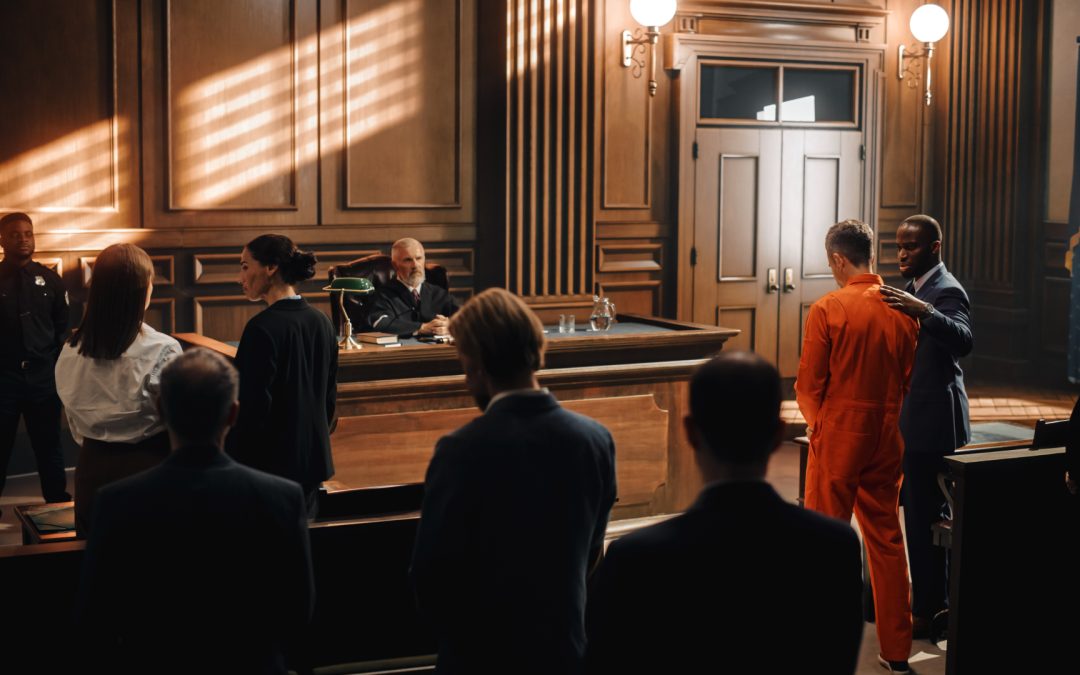In the complex world of the legal field, it is imperative to grasp the intricacies of different statutes, particularly those that can significantly influence legal proceedings and results.
California Penal Code 25 exemplifies such a provision that carries deep ramifications in the realm of criminal law.
Now, let’s explore its various sections, consequences, possible defenses, impacted charges, and the significance of obtaining legal representation.
Sections of PC 25
It is imperative to understand that California Penal Code 25 has different sections with unique differences. Let’s take a closer look together:
-
Section 25(a): Insanity Defense
In this particular section, the concept of the insanity defense is explained, granting individuals accused of crimes the opportunity to plead not guilty on the grounds of being mentally incapacitated[1].
It’s crucial to grasp that the viability of this defense rests upon the mental condition of the defendant during the commission of the offense. In the event of a successful argument, it could potentially lead to a verdict of not guilty by reason of insanity, subsequently directing the individual towards psychiatric treatment rather than imprisonment.
-
Section 25(b): Competency to Stand Trial
Competency to stand trial pertains to the defendant’s cognitive ability to comprehend the essence of the legal proceedings brought against them and contribute effectively to their defense with the assistance of their attorney.
Section pc-25(b) sets forth criteria for evaluating competency, guaranteeing equitable trials for individuals accused of crimes.
-
Section 25(c): Limitations on Diminished Capacity
Within this section of the code, there are limitations on employing diminished capacity as a defense.
Although defendants can still introduce evidence of mental impairment to reduce culpability, the extent to which this defense can be utilized is more limited as compared to the insanity defense. Seeking guidance from legal professionals is imperative in order to effectively navigate these intricacies.
Penalties and Implications
Engaging in actions that go against the regulations stated in PC 25 of the California Penal Code can lead to substantial legal outcomes. If found guilty, individuals may be subject to imprisonment, monetary penalties[2], as well as court-mandated assessments or therapy for psychiatric purposes, depending on the specific situation.
Having a comprehensive grasp of the possible consequences is essential for both individuals facing criminal charges and legal professionals engaged in such cases.
Defenses Enabled by PC 25
As we have seen, California PC 25 has different sections, which means that there are also different ways to approach the defense. Let’s see the most important points:
- Insanity Defense
The insanity defense offers a means for individuals grappling with mental illness to access suitable care instead of facing punishment. By proving their inability to comprehend the consequences of their actions due to mental incapacity, defendants may evade customary criminal consequences.
- Competency Concerns
Upholding the principles of justice and fairness involves guaranteeing that defendants possess the necessary competence to participate in trial proceedings[3]. In instances where questions arise about a defendant’s competency, legal proceedings may be temporarily suspended until competency is reinstated through treatment or other interventions.
- Diminished Capacity
While CA 25 (c) imposes certain limitations, evidence pertaining to reduced mental capacity can still have relevance in criminal proceedings. It is crucial to closely collaborate with legal representation in order to assess the feasibility of employing this defense strategy and its potential ramifications on the final verdict.
Charges Affected by PC 25
A variety of criminal charges, particularly those related to violent offenses[4] or actions influenced by mental health conditions, can be impacted by pc-25 of the California Penal Code.
Familiarity with how this law intersects with different charges, ranging from homicide to assault, is essential for providing effective legal representation.
Schedule a Free Consultation
Expert guidance is essential when attempting to understand the intricacies of California PC 25.
If you or someone close to you is confronting criminal charges that involve mental health considerations, we advise you to reach out to our team, Manshoory Law Group. Our experts will guide you through every step of section CA 25 and help with a substantial impact on the result of your situation.
In summary
California Penal Code Section 25 significantly influences the framework of criminal law in the state. It not only delineates defenses rooted in mental health, but also tackles matters related to competency, thus embracing essential elements of fairness and legal proceedings.
Gaining comprehension of its regulations, penalties, and consequences allows individuals and legal professionals to maneuver through the legal framework with greater efficiency, ensuring equitable resolutions and appropriate care for individuals facing challenges pertaining to mental well-being.
Reference
- https://manshoorylaw.com/blog/mental-illness-in-the-criminal-justice-system/
- https://portal.ct.gov/dol/knowledge-base/articles/ui-overpayments/what-is-a-monetary-penalty?language=en_US
- https://manshoorylaw.com/blog/what-to-expect-at-your-trial/
- https://manshoorylaw.com/blog/violent-crimes-in-california/



